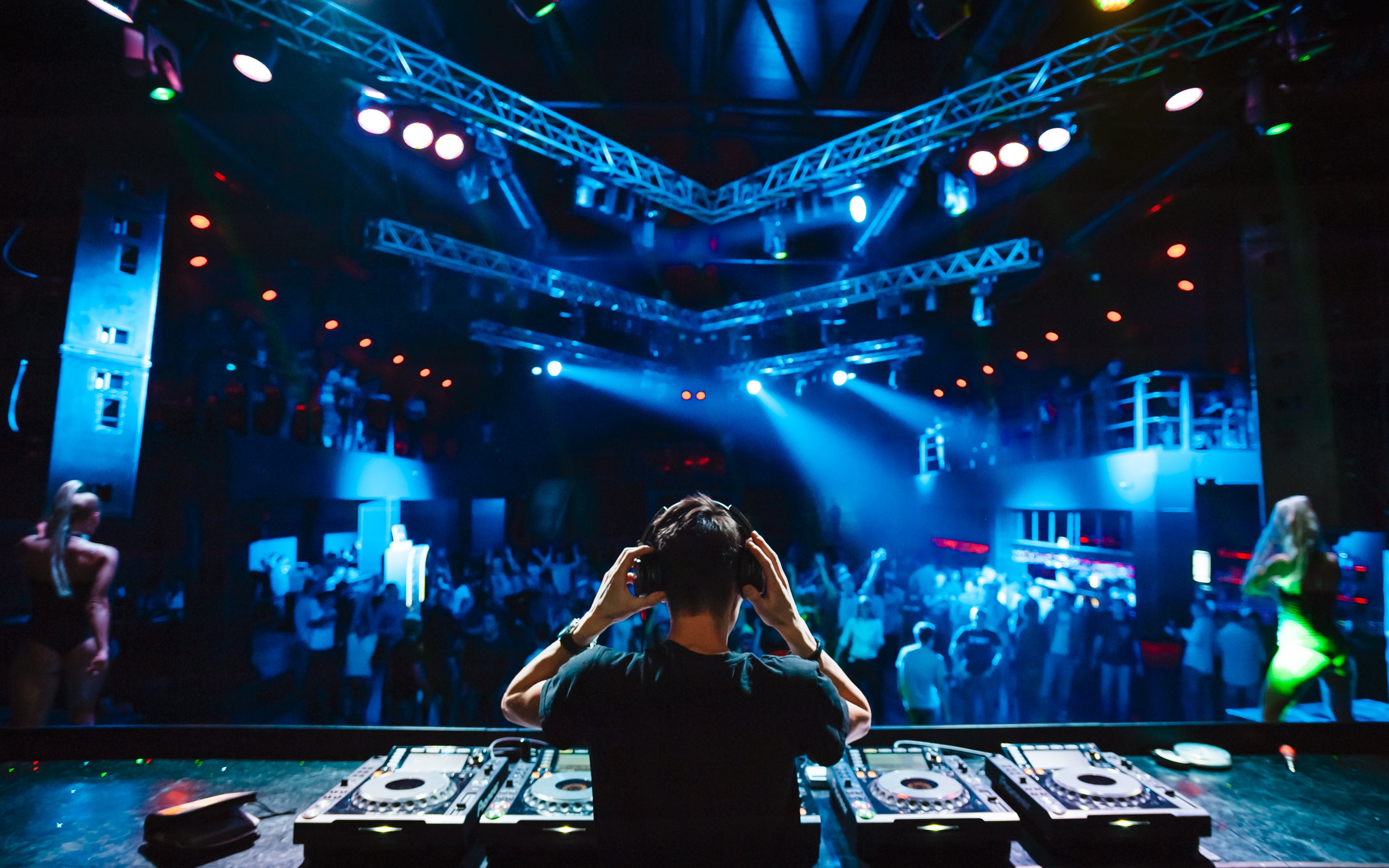A year of no partying: What happens when we’re not allowed to go out out?
As the UK reflects on the one-year anniversary of the first lockdown, Olivia Petter considers what a year without nights out has done to our mental wellbeing


Whenever Lily, 25, feels an anxiety attack coming on, she plans a night out with her friends. “As someone with a slew of mental health issues, I’m always trying to find ways to exist in the moment,” she says. “Going out offers me an escape from my own mind: it’s liberating.” Of course, like all of us, Lily hasn’t been able to go out dancing with her friends for a year. “Being stuck inside for months at a time has been hard,” she adds, “and I do call my friends quite often, but it’s not the same as being in their company, enjoying a few drinks, and just letting loose to some good music.”
Nights out are one of the many liberties the pandemic has taken from us in the last year. While it would be easy to dismiss this as an inconsequential loss, particularly when you compare it to some of the other things coronavirus has robbed us of (weddings, wakes, hugging our families, many people’s jobs and 126,000 lives), the feeling of escapism a night out affords us can be invigorating to our emotional wellbeing. And it’s not one that’s easily replicated in lockdown, when social contact has been reduced to either walking or Zooming.
The psychological benefits of nights outs – or “going out out” – are well documented in studies that have examined the effects of common nightlife activities, such as dancing and watching live music. One study from 2014 found that dancing can alleviate symptoms of depression and anxiety while research published in the Psychology of Music journal in 2017 found that going to see live music regularly can increase life expectancy by up to nine years.
“For many people, going out with friends is about tension release,” explains clinical psychologist Marc Hekster of The Summit Clinic. “It’s like exhausting the emotional fumes you’ve been withholding. A degree of hedonism – whether it’s about dancing, or simply socialising in large groups – can be very beneficial for young people in particular.” For people with mental health issues like Lily, going out can become a way of getting out of their heads, an essential activity without which anxious thoughts can take over.
Read more:
Many people view nightlife as synonymous with alcohol consumption and for some, drinking is integral to their sense of escapism. But that’s not necessarily the case for everyone. Take Kerry Needs, 36, who doesn’t drink and, pre-pandemic, was a regular at trance nights in Nottingham. “It’s a small, tight knit community with a lot of the same people,” she says. “It’s a really nice feeling when others get the same buzz from music that you do, and you know the same tunes, and get excited by the same energy. It’s a really cathartic experience. Without it, I feel like there’s a part of me that cannot be expressed.”
Individual experiences aside, there is also an entire industry to consider here. The UK nightlife sector employs more than 1.3 million people and contributes £66 billion to the UK economy per annum, according to the Night Time Industries Association (NTIA). The pandemic has put nearly 800,000 jobs at risk, while a report from the NTIA in February warned that the industry is on the brink of “extinction” with four in five UK nightclubs at risk of closure.
Nightclubs have been my whole life for many years. They’re where I met my wife and many of my closest friends
But those who work in the nightlife sector have lost more than just their jobs. Take John Hutchison, 37,a DJ based in Edinburgh. When the pandemic struck, he was in the middle of making his debut at the Le Visiteur Online Presents series at Oslo Hackney, a hugely popular nightlife venue in London. “DJing has been my whole life since I was very young,” he says. “No matter where I have been or what else I have done, it has always been my sole focus and creative outlet.” Aside from not being able to do the thing he loves – “DJing at home on a livestream just isn’t the same” – Hutchison has also spent the last year mourning the loss of something integral to his identity. “Nightclubs have been my whole life for many years, they’re where I met my wife, who was a nightclub manager at the time, and many of my closest friends. I can’t wait to get back behind the decks.”
But what happens when we do finally return to being allowed to go “out out”? Will we be able to slip right back into our old ways, or will there be consequences from not having been able to paint the town red for an entire year? “Our social skills have atrophied over the last year,” says Craig Hainey, social psychologist at UC Santa Cruz, California. “It is important to realize that we’ve all been through a form of ‘social trauma’ and that the experience has changed us. It’s not that we can’t recover, but we do have something that we need to recover from.”
The term “re-entry anxiety” has been used with increasing frequency in recent months as people discuss their fears and concerns for reintegrating themselves into society once lockdown restrictions come to an end. This is something that Becky, 24, has experienced ever since Boris Johnson unveiled plans to lift all social distancing restrictions in England on 21 June, meaning nightclubs may be able to reopen. “I’m very much a people person and have missed being able to go out with friends hugely,” she says. “But at the same time, having been in lockdown for so long, I have found myself getting used to spending more time at home and reverting to old ways where I wasn’t very sociable and didn’t go out much at all. I’m not sure how I’ll fare once things reopen.”

“There’s been so much anticipation already about 21 June that people will inevitably compete about who can have the wildest night out,” says Hekster. “For those who find themselves lacking in social confidence or without a big group of friends, they might well do their own personal extension of lockdown to avoid the pressures of going out and feeling inadequate.”
Of course, there are risks for those at the other end of the social confidence scale, too. Search “21 June” on Twitter and you’ll find thousands of tweets and memes from people anticipating their first big night out. “21st of June is gonna be a serious serious party,” tweeted one person. “June 21st I’m partying like crazy,” another added. Many focused their attention on alcohol, with some even writing fake eulogies to their livers in anticipation of how much alcohol they plan to consume. “June 21st. My liver will walk itself to the nearest medical centre,”teasedone person. “Gonna have to start training my liver for the 21st June,” another added.
There’s a huge risk that some people will experience an explosion of energy once they’re finally able to go on a night out with friends
“There’s a huge risk that some people will experience an explosion of energy once they’re finally able to go on a night out with friends,” says Hekster. “and that could potentially be quite destructive, with people feeling compelled to take more risks, possibly with drugs and the amount of alcohol they consume.”
Equally, there’s a risk of enjoying an enormous high on that first night out and subsequently having what Hekster describes as a major reality crash the following day when you realise life is simply ordinary again. “That transition from pure elation to regular life again can be very tough at the best of times, but particularly when you consider that said elation has been off limits for a year,” he adds. As a result, both states will be heightened.
The good thing is that, while all restrictions are expected to lift in June if the government’s four markers required for lifting are met, there will be a gradual easing of socialising restrictions in the preceding months. From 29 March, people will be allowed to meet outside, including in private gardens, in groups of six. The next stage, which will be no earlier than 12 April, will see restaurants and pubs open their doors to outdoor diners. This will be followed by stage three (no earlier than 17 May), which will see people able to meet in groups of 30 outdoors and in groups of six indoors.
Take heed of these incremental allowances and re-integrate yourself slowly, advises Hekster, because it will take some of the pressure off of 21 June. “The return to a group environment will bring both relief and joy, but also allied anxieties associated with social pressure and almost re-learning how to be in these groups,” he explains. “There will be catching up and updating going on, soothing, caring and loving. By engaging in that social bonding, it will make the transition to 21 June and those eventual nights out much easier.” Hopefully, by following this advice and taking note of the government’s rules on socialising, by the time June rolls around, the idea of going out again won’t be bound up with so much pressure and anxiety. Instead, it will just become just another part of the fabric of our social lives, one that offers a healthy tension release, just like it did before.
Join our commenting forum
Join thought-provoking conversations, follow other Independent readers and see their replies
Comments
Bookmark popover
Removed from bookmarks